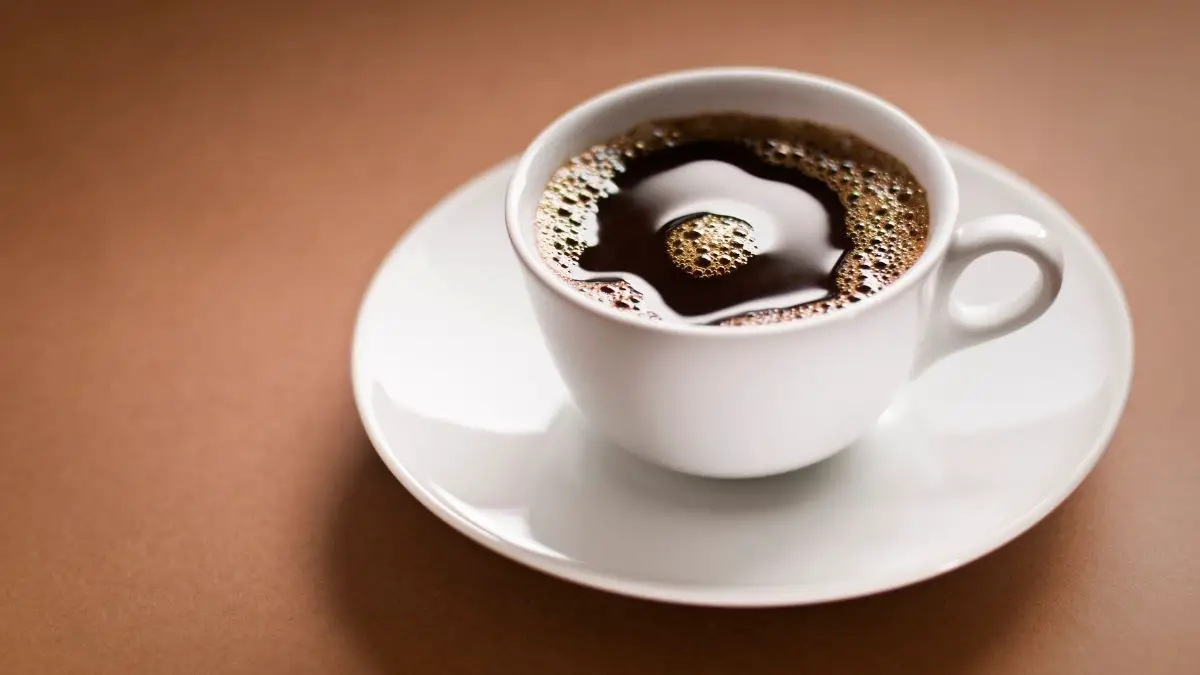Coffee has been a staple to many beverage cultures around the world, and more often than not, it’s part of morning activities. Black coffee, for instance, is widely consumed at any time of day, especially for those who make it their go-to drink. But what’s the best time to drink black coffee?
Black coffee is a favorite type of coffee for purists as it doesn’t involve any added flavors like cream, milk, or sugar. In the U.S., it’s typically consumed during breakfast as its caffeine content is a stimulant to get you physically and mentally alert throughout the day. The recommended time to drink black coffee is from 10:00 A.M to 12:00 P.M.
With that being said, we will check more about black coffee, and why it’s best consumed during these hours.
What Is Black Coffee?
Typically as it may sound, black coffee is made out of roasted coffee beans and served per se without milk, creamer, or sugar. The coffee beans are ground and then soaked in water that liberates their color, flavor, nutrients, and caffeine content. It’s also known as black alone due to its natural dark color that doesn’t change since there are no added flavors like milk or cream.
Traditionally, black coffee is served hot, but when many commercialized and modern coffee shops became ubiquitous, cold or iced coffee also became a thing. Black coffee is also popular as a coffee base in many beverages, including macchiatos, cappuccinos, and lattes.
When Is The Best Time To Drink Black Coffee?
As we aforementioned, the perfect time to drink black coffee would be around 9:30 or 10:00 in the morning until noon, and from 2 o’clock to 3 o’clock in the afternoon. This is highly recommended due to your cortisol levels being low between these hours.
There may be no large studies about this, but dietitians and nutritionists highly suggest drinking black coffee at least mid or late in the morning. And if you missed your morning coffee, between 2:00 and 3:00 in the afternoon is still good.
By the way, cortisol is a primary stress hormone that’s released when a brain structure sends signals to your body. Your cortisol levels are usually at their peak at least 30 to 45 minutes after waking up in the morning, which is the reason why coffee isn’t an option. However, it also slows down throughout the day, which is the best time to enjoy a cup of coffee.
When your cortisol levels are high while drinking coffee, your brain functions can weaken and can damage your immune system. This will cause adverse health effects such as skin problems, rapid weight gain, diabetes, troubled muscles, and more.
Is It Fine To Drink Black Coffee At Night?
Consider yourself an insomniac if you drink coffee in the evening. Avoid doing so as much as you can if you want to get a good rest throughout the night. Try not to drink black coffee after 3:00 P.M., especially when you plan to hit the sack at 9:00 P.M.
Coffee contains caffeine, which is a stimulant that keeps you alert and awake physically and mentally for up to six hours post-drinking. Studies have also observed that older adults are more affected with the sleeping disorder after drinking coffee at night compared to younger adults.
So if you’re considering a good night’s sleep, and are past the younger stage, try pouring yourself a cup of coffee at least until 3:00 P.M. It shouldn’t go beyond that, or you’ll experience fatigue and discomfort the following day.
What Are The Bad Effects Of Black Coffee?
Okay, bad news first.
Excessive drinking of black coffee can cause many health problems. This includes insomnia, migraines, fatigue, nausea, jitters, dysphoria, stress and anxiety, uncontrollable heartbeat, abdominal spasms, cramps, acidity, and can also increase LDL (low-density lipoprotein) cholesterol levels. Consider choosing filtered coffee to help reduce the bad cholesterol levels in your system.
Your body may also have difficulties absorbing iron, zinc, and calcium. If you’re pregnant, but a heavy coffee drinker, you may have to limit yourself to no more than a cup of coffee daily. Your baby inside your stomach might be delighted to receive a lower caffeine intake.
Also, kids between 5 and 7-year olds are not encouraged to drink coffee as it can also increase bedwetting, according to a survey.
What Are The Health Benefits Of Black Coffee?
Here comes the good news. Of course, when consumed in moderation.
Black coffee is rich in antioxidants and is a great source of vitamin B2 and magnesium. Since it has high levels of caffeine, which is a stimulant, coffee allows you to be more focused and alert physically and mentally. Caffeine might be a diuretic, but there’s no known effect of severe dehydration unless there’s a caffeine overdose happening.
Coffee can also help prevent certain types of cancer from developing such as liver cancer, endometrial and colorectal cancer, oral, and prostate cancer. Drinking coffee in moderation is also linked to a healthy liver, which helps prevent liver cirrhosis.
It may also help avoid neurodegenerative diseases, including Parkinson’s disease, dementia, and Alzheimer’s disease. Coffee can also help lower the risk of type 2 diabetes, help weight loss, improve cardio performance, and help improve mood and appearance.
Additionally, drinking coffee may also help reduce the risk of strokes and heart diseases.
Black Coffee Nutrition Information
With its health benefits, there’s no doubt why black coffee is widely consumed in all parts of the world. Here, you can find nutrition facts of black coffee per serving, or at least about a cup of 240 ml.
- Calories: 2
- Protein: 0 g
- Fat: 0 g
- Carbs: 0 g
- Fiber: 0 g
- Caffeine: 96 mg
- Riboflavin: 14% of the Daily Value
- Niacin: 3% of the Daily Value
- Thiamin: 3% of the Daily Value
- Potassium: 3% of the Daily Value
How Much Caffeine Intake Is Healthy?
The Food and Drug Administration (FDA) recommends limiting to 400 mg per day of caffeine intake for healthy adults. For coffee, that’s about four to five cups a day.
Types Of Black Coffee
Black coffee is a popular base of most caffeinated drinks such as caffè latte, cappuccino, macchiato, and more. There are many types of black coffee that are used in several beverages, but these undergo different brewing methods as well as how they’re served depending on their cultural influences. The Italian culture, for instance, is known for its coffee originals that have been popular throughout the world.
Let’s check out some of the types of black coffee.
- Espresso
- Ristretto
- Americano
- Long Black
- Doppio
- Pour Over Coffee
- Drip Coffee
- Batch Brew
- Instant Coffee
- AeroPress Coffee
- Vacuum Coffee
- Immersion Coffee
- Bulletproof Coffee
- Turkish Coffee
- Black Eye
- Capsule Coffee
- Coffee Bags
- Decaf Coffee
- Dripped Eye
- Guido
- Lazy Eye
- Moka Pot
- Red Eye
- Siphon
What Foods, Drinks, And Fruits Contain Caffeine?
It’s not just coffee that contains caffeine. And if you think that your kids are safe if they don’t drink coffee, think again. There are several foods that are caffeinated that you may need to avoid or lessen. Check out the list below.
- Dark Chocolate Coated Coffee Beans
- Dark Chocolate
- Chocolate Cake with Frosting
- Chewing Gums
- Cocoa Beans
- Kola Nuts
- Guarana
- Energy Bars
- Tiramisu
- Coffee Ice Cream
- Coffee-flavored Bagels
- Chocolate-flavored Foods
- Guayusa
- Yaupon Holly
- Soda
- Tea
- Medication
- Cocoa-flavored Cereal
Can You Drink Black Coffee On An Empty Stomach?
Most of us enjoy a cup of coffee first thing in the morning. It helps people get focused and prepare for the set activities throughout the day. Others love to have a pair on the side such as toasts, bread, or cake. Some prefer to have coffee without anything to eat.
But is drinking coffee on an empty tummy affects your health?
Many people believe that drinking coffee irritates your tummy’s lining that might cause heartburn, indigestion, acid reflux, nausea, and irritable bowel syndrome (IBS). A study shows that the bitter flavor of coffee causes stomach acidity, especially when your tummy is empty.
However, the study doesn’t seem to find anything that links to digestive issues when coffee is consumed on an empty stomach. On the other hand, if you find yourself sick after drinking black coffee in the morning without eating, feel free to adjust like getting a pair.
There are many perfect coffee pairs that will get you in the mood, including crepes, croissants, berries, hash browns, and more. If you’re like me who doesn’t enjoy coffee with food, then consider adjusting your caffeine content in your cup to avoid any side effects.
The Bottom Line
Black coffee is best consumed during mid or late in the morning or until 3:00 P.M as these are a great time when your cortisol levels are significantly low. While coffee offers great health benefits, too much intake can also cause harmful effects on your body. So you may limit your caffeine intake to 400 mg a day, at least if you are generally healthy.
Pour yourself a delicious cup of coffee and enjoy it in moderation. Remember that healthy living counts the most.

